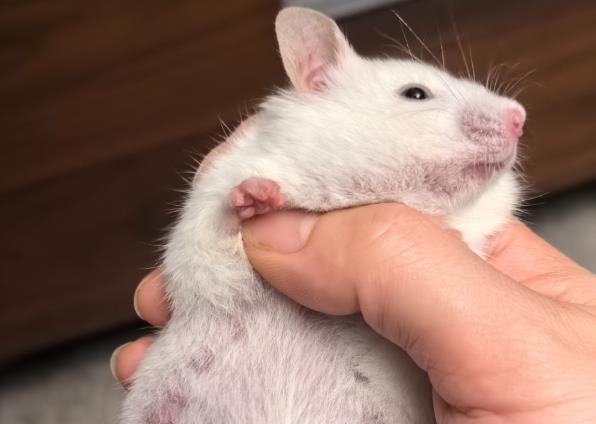Here are the typical characteristics of a pregnant hamster, which can be identified through comprehensive observation of body shape, behavior, and physiological changes:

I. Physical Changes
Pear-Shaped Belly Expansion
The abdomen gradually swells into a pear shape (narrow at the top, wide at the bottom) 10 days after pregnancy, feeling soft and elastic (different from the uniform roundness of obesity).
In late pregnancy (15–22 days), the abdominal circumference increases significantly, showing a distinct rounded profile from the side—you may even feel the contours of the pups.
Prominent Nipples
By the second trimester (around 12 days), nipples enlarge to 1–2mm, resembling pink "cherries" with sparse surrounding fur.
Syrian hamsters exhibit faster mammary development, with possible pink halos around the nipples.
Rapid Weight Gain
Daily weight gain: 2–5g for dwarf hamsters, 5–10g for Syrian hamsters. Total weight gain in late pregnancy can exceed 30%.
II. Behavioral Abnormalities
Nest-Building Frenzy
The hamster frantically collects bedding (wood shavings, tissues) to build a "maternity den" up to 10cm tall, even hoarding food inside.
Increased Aggression
Refuses contact with male hamsters and strongly resists handling (e.g., biting the cage, 发出警告声 (making warning sounds)).
Reduced Activity
In late pregnancy, movement slows, rolling over becomes difficult, and the hamster often walks in a "penguin gait" (hind legs splayed to support the abdomen).
III. Physiological Signs
Genital Changes
The labia separates by 0.5–1cm, possibly with milky white discharge (obvious after 10 days of pregnancy).
Rapid Breathing
Respiratory rate increases to over 120 breaths per minute 48 hours before delivery, caused by fetal pressure on the lungs.
Fluctuating Appetite
Appetite surges in early pregnancy but may decrease in late pregnancy due to stomach compression.
Notes:
Pseudopregnancy can mimic these symptoms (15% probability); confirm with multiple indicators.
Avoid pressing the abdomen, which can cause miscarriage. Use weight tracking and non-contact observation instead.
